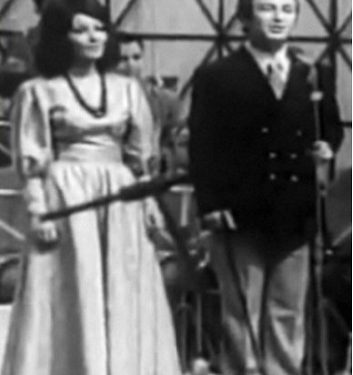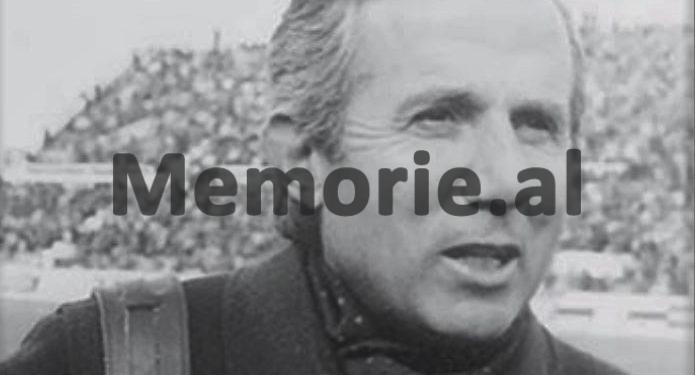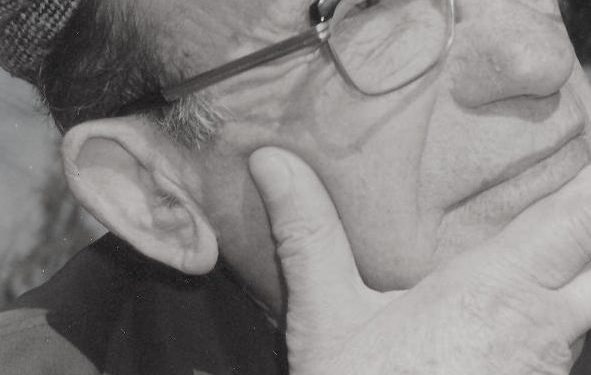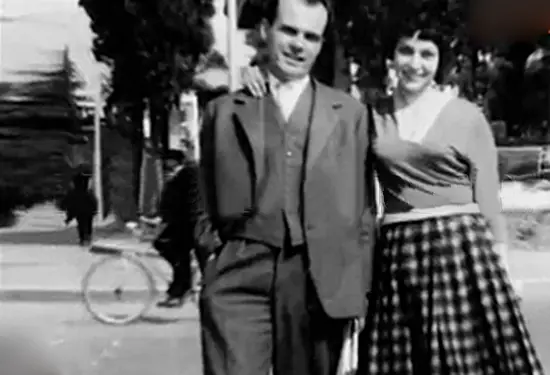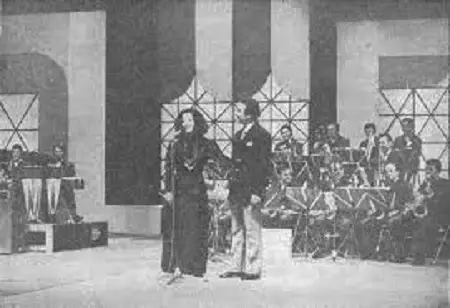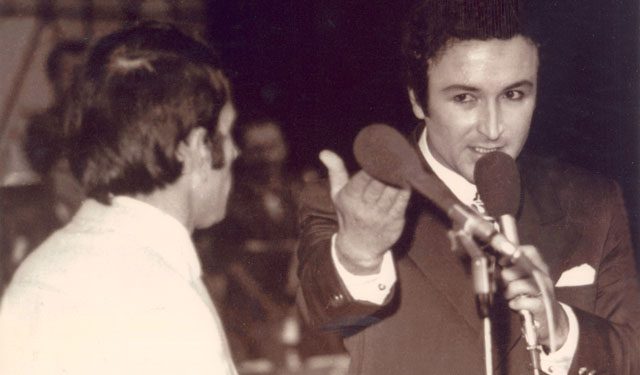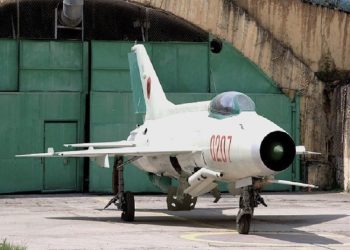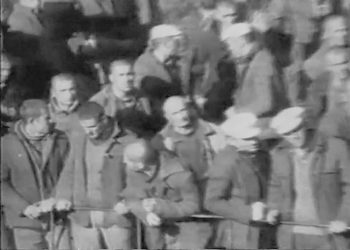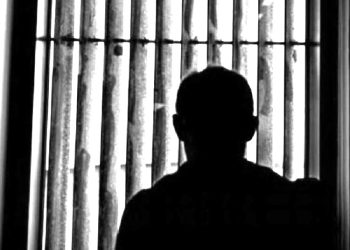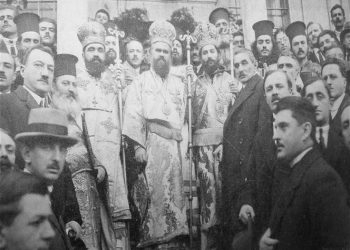From Skifter Kelliçi
The third part
Prologue
Memorie.al / It are the fourth time that I am writing about the 11th National Song Festival on Albanian Radio Television, (December 22-25, 1972), as much as I wrote some time ago about the Tirana Conference, (16- April 20, 1956). And this time for the same reason: for the lack of historical accuracy of some events related to this festival, which Ramiz Alia, the former first secretary of PPSh, after the death of Enver Hoxha, describes in the book his last “My Life” (2010), although there are objective, honest statements in it, especially when he testifies about the serious mistakes that led to the failure of the communist system in Albania, led by Enver Hoxha, for which he apologizes. But in the description of his figure, Ramiz Alia is often contradictory, especially in the chapter; “The fight against liberalism”, where it stops at the 11th Song Festival on Albanian Radio and Television (December 22-25, 1972).
Continues from last issue
How was the 11th Festival received?
To be honest, my friends and I, journalists at RTS, liked the festival, which I had the opportunity to attend only one night in the hall (the other nights on TV), even in the gallery, on foot, because the tickets we distributed mainly to our closest collaborators, prominent figures in various fields of culture, art and science. Except we were a bit impressed, the appearance! There were those to whom it seemed a bit excessive. Even sporadically among the people, especially among those who were conservative, some extreme opinion was created:
“Why, where are we here, in Italy, for singers to dress and sing like this? But also, somehow under his breath: “The festival was beautiful, with nice songs… and the clothes, especially of the singers. How good that their time on television has finally come. But, God forbid, there should be consequences from above”! One thing is certain: Clothing similar to that of the singers had begun to be seen regularly, at least among the young men and women of Tirana.
More precisely, in the children of the leaders, with the exception of the children of the “great leader”. So, as a result of the parades on the big boulevard and the well-known bars of Tirana, they were on the stage of the 11th Festival. But, in any case, those clothes were still a surprise, in the untrained eye of the Albanian TV viewer.
Even the well-known publicist Marash Hajati, who worked as director of RTS and then general director of RTS from 1974 to 1987, in his book “The back door of the press”, related to the external appearance of He gives similar thoughts to the 11th festival, when he writes: “Everywhere, at home, on the street, in offices, you could hear a multitude of evaluations and opinions from the most diverse: ‘It was a beautiful festival, we enjoyed ourselves ‘.”And what was original”? “Tranical imitations like in Italy”. ‘Bad’. “It doesn’t suit us…”!”Someone will suffer”! “The Party knows those things”!
With half a voice, with half timidity and, half vigilance, these voices came in the form of rumors, up to the corridors of the Central Committee” (page 76.) Below he continues: “That night in the form of anger, something was said in the palace of rest in Vlora, by Enver Hoxha…”! But the question arises rightly: “Who did he tell”?! So even Marash Hayati, although a press instructor at the Central Committee, in this finding, remains in the field of conjecture, just like me in the description I made of this episode above, because even now, the truth of this has not yet been revealed expression, coming out of the dictator’s mouth!
Better than anyone else, this can be proven by his wife, Nexhmija, who, as we said above, must have been present those nights of the festival, next to him in Vlora, maybe even the children, all the more so Marash Hayati continues: “His anger was greatly increased, when the central jury and those of the districts, in the Italian style, communicated and evaluated the songs and interpretations of that festival, which brought so many surprises”! (Yes there).
I am writing about the 11th Festival and I see it appropriate that, in order to quench the curiosity of readers, especially readers who were not yet born in those years, or were still minors, we recall some of his songs: Festivali, as mentioned above, took place from December 22-25, 1972, in the hall of the TOB (Opera and Ballet Theatre). 20 songs were sung by 19 singers (Sherif Merdani sang two). The songs were accompanied by the big orchestra, with conductors Ferdinand Deda and Eno Koço, the wind orchestra, directed by Gaspë Çurçia and the guitar orchestra, by Alfons Balliçi, as well as by a complex, consisting of three girls and three boys.
In addition to the central jury, for the evaluation of the winning songs, a jury was also created in; Korçë, Shkodër, Vlorë, Gjirokastër…! The festival, as I mentioned above, was directed by Bujar Kapexhiu and Edi Luarasi, the director was Mihal Luarasi. The first prize was won by the song: “Erdhi pranvera” by Pjeter Gaci, sung by Tonin Tërshana, the second prize by the song “The roads are beautiful”, by Agim Krajka, sung by Lindita Sota, the third prize by the song “Kush me know me”, sung by Ema Qazimi.
Of the other songs I am mentioning; “On the TV screen”, sung by Justina Aliaj, “Mosaic of sounds and colors”, sung by Liliana Kondakçi, “A boy came to my village”, sung by Dorian Nini, “When we hear voices from the world”, sung by Francesk Radi , “I’ll meet everyone tonight”, sung by Zija Saraçi, “The last night”, sung by Besnik Alibali…!
So, after a few days, that something was said about the festival, and not for the good, we, RTS employees, also smelled it, but we didn’t notice anything disturbing, let alone alarming, about Todi.
At least that’s how it seemed to us. There were no lightning meetings of the party or the collective, no important figure of the PPSh Central Committee was seen to rush into the offices of Todi Lubonja, or he was called urgently to the “red headquarters”. But it is a fact that; “Voice of the People” did not write a single line about this festival, neither for the worse, nor for the better! Also the newspaper “Drita”, organ of the League of Writers and Artists of Albania!
“Those days, – writes Ramiz Alia, in his book; “My life”, Enver Hoxha was on vacation in Vlora, so I didn’t have the chance to share any thoughts about the festival. After a few days, on January 9, 1973, in a meeting of the Presidium of the People’s Assembly and after 5-6 days also in the Central Committee of the Party, Enver Hoxha made a strong criticism of the 11th Song Festival in RTSh, describing it as a serious departure from the party line, even hostile.
Before Enveri spoke at the Presidium of the People’s Assembly, we had not managed to talk together about the festival. So his criticism of this festival was unexpected even for me. I didn’t even like that Enveri made public criticism, without talking to me at all, which was responsible for this sector of activity”. (Pages 263-264).
No, this statement to Ramiz Ali is not correct. He apparently confuses times and dates. And here’s why: On January 20, 1973, that is, a few weeks after the end of the 11th Festival, (December 22-25, 1973, Todi Lubonja gathered us, the creators, in a meeting that had become a habit to organize, every month, to give us orientations for our creative plans, for the next month. Quite an ordinary meeting. As if we had forgotten the festival. We thought that Enver Hoxha really didn’t like it, but he ended it like that.
But at the end of the meeting, Todi took out a brochure from his pocket and told us: “Now I will read you a fragment of the speech that Comrade Enver gave on January 9, at the meeting of the Presidium of the People’s Assembly, entitled, “The development of literature and the arts should be fought against any foreign ideological influence”, where he also criticizes us.
It was really surprising why the dictator had chosen the Presidium of the People’s Assembly and not the Central Committee, where at any time and whenever he liked; he could invent a meeting as the place to deliver this speech even more so when in that meeting, a report presented by the Executive Committee of the People’s Council of the district of… Tepelena was considered?!
This discussion, all the more about art, was like a goat among sheep, because it had nothing to do with the economic problems that were dealt with in this report, surely filled with figures and facts, necessarily inflated, about the “successes” of the circle of Tepelena. However, Enver Hoxha’s hammer beat elsewhere.
After reading the first lines of the speech of the “great leader”, where he praised Tepelena and the people of Tepelena, Todi continued in a calm voice, the lines where the people of this province, “all their lives, have sung and danced in different ways…” , that: “through dances and songs, they sang to the people, their high virtues, therefore, in all these songs and dances of the people there is a great wealth of culture and art that have kept alive throughout the centuries the martial and cultural traditions of the masses of the people”.
As you can see, Enver Hoxha’s phraseology in this discussion is so barren, so stale, so general, that it can be dedicated to the cultural wealth of every province of our country. But, when Todi started reading further, we understood where this incomparable demagogue wanted to go: “A school teacher, writes to me that; when he tells the students how they should look and how to dress, they respond; You, fellow teacher, tell us to be polite, with a regular appearance, but we watch on TV, people appear with clothes, hair and appearance that you have criticized. But those who appear on television are official. No friends, these things are not official, but contraband”! (Enver Hoxha, Work 50, 1986, page 4-5).
First, I must say, that the dictator overdid it surprisingly! That there had been interviewees or participants in television shows, in clothes, or with somewhat long hair, this was not excluded. But each editor had orders to avoid any such occurrence and, as a result, I never remember that this problem became acute.
But Enver Hoxha taught this fact with the absurd expression: “These things are not official, but contraband”, where the last word was used completely out of place. Then, the letter also seems to have been created by him, as a trigger to attack Television and, after him, Todd himself, as happened next.
After reading these lines, redeemed, even with one hand in his pants pocket, Todd took off his glasses and told us: “As you can see, we have to be careful that from now on, people with the flaws pointed out by friend Enver”. With that, the meeting was closed. Not a word had been mentioned by Enver Hoxha, after more than two weeks, about the 11th Festival. Wasn’t Todi Lubonja and we, who listened to these remarks of the dictator, right, that with that, all unrest about its consequences had ended? This is the truth. So, in the speech held at the Presidium of the People’s Assembly, on January 9, 1973, Enver Hoxha did not mention the 11th Festival.
He did not even criticize the festival in those days even in the apparatus of the Central Committee. As we will see in the continuation of this dossier, he did this later… on March 15, because if the dictator had attacked the 11th Festival on January 9, 1973, Todi Lubonja would not have read the above fragment, with one hand in his pocket, but he would have read some “Alla Enver” attack, which we were used to hearing, did we read against the enemies of the Party, which went to the knife…! However, even this fragment had a meaning. “I knock on the threshold, so that the door can hear”, – say the people. In short, we would hear his echo later.
Let’s go back to Ramiz Ali’s book “My Life”. “The fundamental thing,” he writes, “is that I was not clear why Enver Hoxha held such a critical position towards the festival.” In all the contacts and conversations I had with him, about problems of arts and culture, Enveri was never rigid and sectarian. Even, we laughed when we remembered how strict Mehmeti was, towards the “gafelesh” who passed by the offices of the prime minister. Enver was broad, with him he can discuss freely”, (page 263).
At this point, Ramiz Alia has many reasons to be surprised. Because, as long as he admits a page above, that neither Mehmet Shehu, nor Hysni Kapo, had given him a warning about the festival, that Enver Hoxha had not even made a warning to him, it is understood that the whole strategy to attack the 11th Festival , he had devilishly woven it in his mind, or even with the consent of his wife, Nexhmije, proving once again unequivocally that, it had been a long time since he had thought, did he listen to the remarks of his colleagues in the Bureau, and then make collegial decisions in the Political Bureau, or in the Central Committee, as Ramkz Alia writes in his book “My Life”! Memorie.al
The next issue follows




